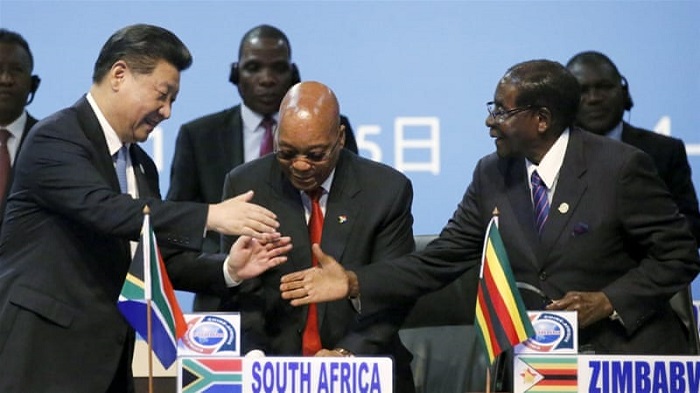China pledges US 60 Billion to Africa
September 4, 2018 | Expert Insights

Chinese President Xi Jinping told African leaders on Friday his country would pump $60 billion into development projects, cancel some debt and boost agriculture under a three-year plan that will extend Beijing’s influence in the continent.
The announcement was made during the Forum on China-Africa Cooperation (FOCAC) in Beijing, a triennial meeting between senior Chinese leaders and their counterparts from across Africa.
Background
The Forum on China–Africa Cooperation (FOCAC ) is an official forum between the People's Republic of China and all states in Africa (with the exception of Eswatini). There have been two summits held to date, with the most recent having occurred from December 3-4, 2015 in Johannesburg, South Africa. The first summit was held November 2006 in Beijing.
Analysis
President Xi pledged an additional US$60 billion to leaders from more than 50 African countries when they met in Beijing for the Forum on China-Africa Cooperation. This includes US$15 billion in grants, interest-free loans and concessional loans – three times the amount pledged in 2015. Also promised are US$20 billion in credit lines, a US$10 billion fund for development financing and US$5 billion to finance imports from Africa.
Xi also announced that China would waive the debt of the poorest African countries that have diplomatic ties with Beijing. Xi mentioned that China will follow a "5-no" approach in their relations with Africa: no interference in African countries' pursuit of development paths that fit their national conditions; no interference in African countries' internal affairs; no imposition of our will on African countries; no attachment of political strings to assistance to Africa; and no seeking of selfish political gains in investment and financing cooperation with Africa.
China’s growing presence on the continent – particularly with its massive “Belt and Road Initiative” – has raised concerns that many African nations might struggle to repay the Chinese debt used to build expensive infrastructure projects, allowing China to take control of strategic assets. But in a staunch defense of his signature belt and road plan, Xi said China was not pursuing “political self-interest” in its investments in Africa.
“Only the people of China and Africa have the right to comment on whether China-Africa cooperation is doing well,” Xi said. “No one should deny the significant achievement of China-Africa cooperation based on their assumptions and speculation.”
South African President Jacob Zuma, the co-chair along with Xi of the summit, said African countries needed Chinese help to process their abundant natural resources, which he said had made the continent vulnerable to exploitation in the past.
Addressing the summit, Rwandan President and African Union chairman Paul Kagame said a stronger Africa was an opportunity for investment, “rather than a problem or a threat”. “Africa is not a zero-sum game,” Kagame said. “Our growing relationships with China do not come at anyone’s expense.” South African President Cyril Ramaphosa said the meeting in Beijing “refutes the view that a new colonialism is taking hold in Africa, as our detractors would have us believe”.
Chinese companies were also encouraged to make at least US$10 billion in investment in Africa in the next three years, Xi said. Chinese direct investment in Africa fell some 40% in the first half of 2015 to $1.19 billion, China’s commerce ministry said last month, due to declining global prices of the commodities that the continent produces.
Africa is growing in strategic importance for China, with the People’s Liberation Army opening its first overseas naval base in Djibouti last year. Cheng Cheng, a researcher at Chongyang Institute for Financial Studies at Renmin University, said Africa’s growing population and expanding middle class made it a huge market for Chinese exports. Cheng said potential also exists for more agricultural imports from Africa.
China has been Africa’s biggest trading partner for the last nine years, with trade volume growing 14% to US$170 billion last year.
China and Mauritius also wrapped up negotiations on a bilateral free-trade agreement on Sunday, according to the Chinese Ministry of Commerce. Once signed, the deal would be the first of its kind between China and an African country.
Counterpoint
Africans broadly see Chinese influence as a healthy counterbalance to the West, though Western governments accuse China of turning a blind eye to conflicts and rights abuses as they pursue trade, and aid policies there.
Assessment
Our assessment is that the future of China- Africa relations is going to depend entirely on how China manages this debt situation which is now spiraling out of control.








Comments